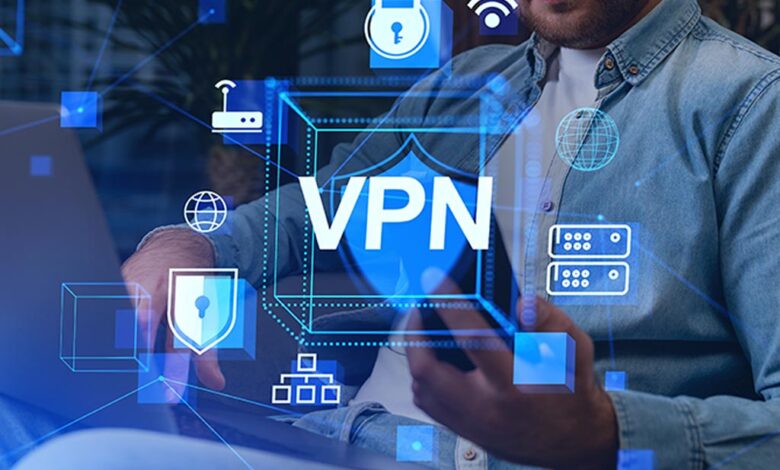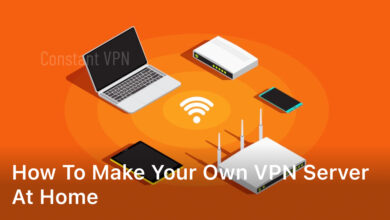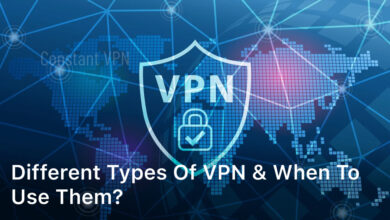
Discover what does vpn stand for and why it’s essential for online privacy and security. Learn about the benefits, types, and common questions regarding VPNs in this comprehensive guide.
Introduction
In today’s digital age, online privacy and security have become paramount concerns for individuals and businesses alike. With cyber threats looming large and personal data at risk, many turn to solutions that promise enhanced protection. One such solution is the VPN.
But what does VPN stand for, and how does it help safeguard your online activities? This article dives deep into the world of VPNs, unraveling their significance, functionality, and benefits.
What Does VPN Stand For?
A VPN, or Virtual Private Network, is a service that allows you to create a secure connection to another network over the Internet. Originally developed to connect business networks securely over the internet or allow you to access a business network from home, VPNs have evolved to cater to a variety of uses beyond the corporate world.
What Does VPN Stand For: Understanding the Basics
The Acronym Demystified
V stands for Virtual: This means that the network is created using software rather than physical connections.
P stands for Private: It signifies that the network is secure and accessible only to authorized users.
N stands for Network: It denotes a group of interconnected devices that can communicate with each other.
Why Use a VPN?
Enhanced Security and Privacy
One of the primary reasons individuals and businesses use VPNs is to enhance security and privacy. When you connect to the internet through a VPN, your data is encrypted, making it difficult for hackers to intercept and steal your information.
Bypassing Geo-Restrictions
VPNs allow you to access content that might be restricted in your region. By masking your IP address and making it appear as though you’re browsing from a different location, you can access websites, streaming services, and other online resources that are otherwise unavailable.
Secure Remote Access
For businesses, VPNs provide a secure way for employees to access the company network from remote locations. This is especially important in today’s work-from-home environment, where secure access to internal resources is critical.
How Does a VPN Work?
The Mechanics of VPNs
When you connect to a VPN, it creates a secure tunnel between your device and the VPN server. Here’s a step-by-step breakdown of the process:
Connection Initiation: You start by connecting to the VPN server using a VPN client.
Data Encryption: Your data is encrypted before it leaves your device.
Tunnel Creation: An encrypted tunnel is established between your device and the VPN server.
IP Masking: The VPN server assigns you a new IP address, masking your real one.
Secure Data Transmission: Your encrypted data travels through the secure tunnel to the VPN server and then to the intended destination.
Types of VPN Protocols
OpenVPN
OpenVPN is one of the most popular and secure VPN protocols. It is open-source, meaning it is continuously reviewed and improved by the community, ensuring high security and reliability.
L2TP/IPsec
Layer 2 Tunneling Protocol (L2TP) combined with Internet Protocol Security (IPsec) provides strong encryption and is commonly used for VPNs. It is known for its balance between security and speed.
PPTP
Point-to-Point Tunneling Protocol (PPTP) is one of the oldest VPN protocols. While it offers good speed, it is less secure compared to newer protocols and is generally considered outdated.
IKEv2/IPsec
Internet Key Exchange version 2 (IKEv2) combined with IPsec is a modern and highly secure VPN protocol. It is known for its stability, especially when switching between networks, making it ideal for mobile users.
The Benefits of Using a VPN
Enhanced Online Security
Using a VPN significantly reduces the risk of cyber threats such as hacking, phishing, and man-in-the-middle attacks. By encrypting your data, VPNs make it nearly impossible for cybercriminals to intercept and misuse your information.
Improved Privacy
VPNs help protect your privacy by hiding your IP address and online activities from ISPs, advertisers, and surveillance agencies. This ensures that your browsing history and personal data remain confidential.
Access to Restricted Content
With a VPN, you can bypass geo-restrictions and censorship to access content from different regions. This includes streaming services, websites, and other online resources that may be blocked in your country.
Safe Public Wi-Fi Usage
Public Wi-Fi networks are notorious for their lack of security, making them a prime target for hackers. A VPN secures your connection on public Wi-Fi, protecting your data from potential threats.
FAQs about VPNs
What does VPN stand for in networking?
VPN stands for Virtual Private Network in networking. It refers to a service that creates a secure and encrypted connection over the internet, allowing users to access a private network remotely and securely.
Can VPNs slow down my internet speed?
While using a VPN can slightly reduce your internet speed due to encryption and routing processes, most premium VPN services are optimized to minimize this impact, ensuring a seamless browsing experience.
Are VPNs legal?
Yes, using a VPN is legal in most countries. However, some countries with strict internet regulations, such as China and Russia, have banned or restricted VPN usage. It’s important to check local laws before using a VPN.
Can I use a VPN on my mobile device?
Absolutely! Most VPN providers offer mobile apps for both iOS and Android devices, allowing you to secure your internet connection on the go.
Do VPNs provide complete anonymity?
While VPNs significantly enhance your privacy and security, they do not provide complete anonymity. VPN providers can still see your online activities, and if required by law, they may have to share this information with authorities. For complete anonymity, consider using additional privacy tools such as Tor.
Choosing the Right VPN
Factors to Consider
- Security Features
Look for a VPN with robust security features, including strong encryption, a no-logs policy, and protection against DNS leaks.
- Server Locations
A wide range of server locations ensures better access to geo-restricted content and faster connection speeds.
- Speed and Performance
Opt for a VPN known for its speed and reliability to avoid frustrating slowdowns during browsing, streaming, or gaming.
- User-Friendly Interface
Choose a VPN with an intuitive and easy-to-use interface, making it simple for you to connect and manage your VPN settings.
- Customer Support
Reliable customer support is crucial, especially if you encounter issues or need assistance with setup and troubleshooting.
Recommended VPN Services
NordVPN
NordVPN is renowned for its strong security features, extensive server network, and user-friendly interface. It offers a variety of plans and supports multiple devices.
ExpressVPN
ExpressVPN is known for its fast speeds, excellent customer support, and a wide range of server locations. It provides top-notch security and privacy features.
CyberGhost
CyberGhost is a great choice for beginners, offering an intuitive interface and a robust set of features. It providesreliable performance and a generous money-back guarantee.
Conclusion
In an era where digital privacy and security are increasingly at risk, understanding what does vpn stand for and how it works is essential. A VPN, or Virtual Private Network, not only safeguards your online activities but also provides access to restricted content and secure remote access.
Whether you’re an individual looking to enhance your privacy or a business aiming to protect sensitive data, a VPN is a valuable tool in your cybersecurity arsenal. By choosing the right VPN service, you can enjoy a safer, more private, and unrestricted internet experience.





